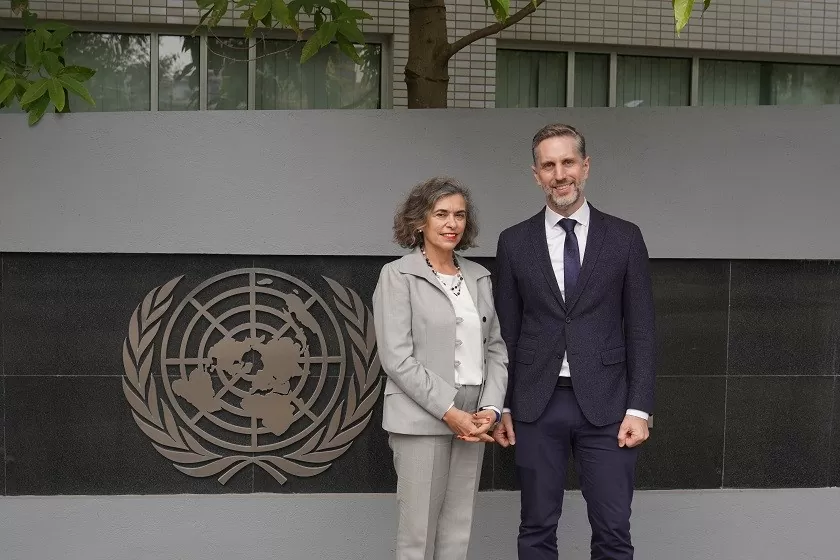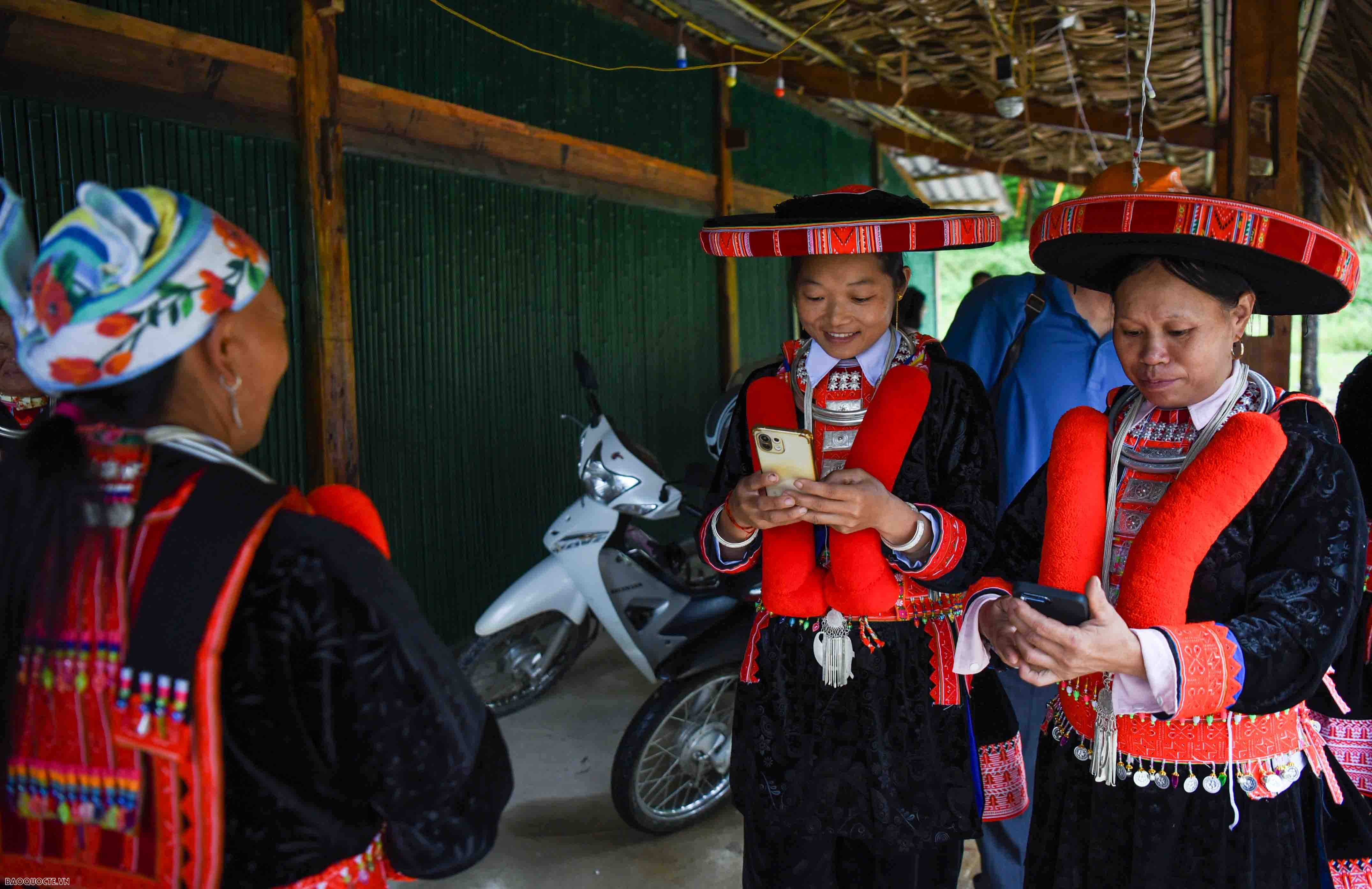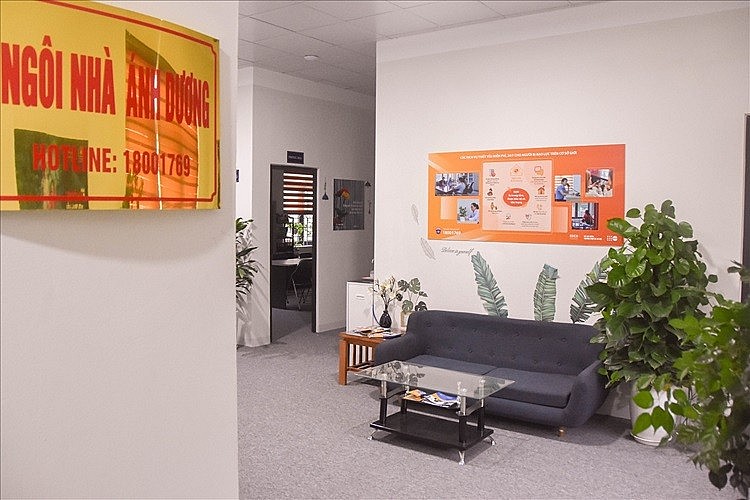
Human Rights Day: Diversity, inclusion, and non-discrimination - Essential foundations for progress
Latest
 |
| Ambassador of Spain to Vietnam Carmen Cano de Lasala and UNFPA County Representative Matt Jackson. (Source: UNFPA) |
Giang*, a young woman from an ethnic minority community in Thanh Hoa Province, Vietnam, vividly recalls the fear she felt when she fled her abusive marriage. With no formal education and few resources, she sought refuge at one of the UNFPA-supported Anh Duong Houses for those seeking refuge away from domestic violence or gender-based violence. There, she found not only shelter but also hope. Through counselling and vocational training, Giang was able to rebuild her life. Today, she runs a small tailoring business and mentors other women in her community who are overcoming similar challenges.
Giang’s story is testament to the transformative power of inclusive, survivor-centred interventions.
It is also a reminder that there is still much to do to guarantee that women and girls and persons in vulnerable situations have access to the support services they need to live free from violence and discrimination.
On 10th December as the world celebrates Human Rights Day, we are reminded that diversity, inclusion and non-discrimination are not just ideals - they are the bedrock of a thriving and harmonious society. Vietnam recommitted to these principles at the United Nations earlier this year highlighting a resolve to build communities where every person feels valued, protected and empowered.
A society that celebrates equality, diversity and inclusion is one that taps into the full potential of its people as a proven pathway to prosperity. When women and girls are empowered, they contribute their talents and perspectives, driving innovation and strengthening communities.
Building an inclusive society involves everyone including persons with disabilities, LGBTQI+ persons, ethnic minorities and other persons in vulnerable situations and marginalised groups. It requires policy commitments, community participation and safe environments where every individual, regardless of their background, feels respected and protected.
Most importantly, everyone must have access to essential services, including sexual and reproductive health care. Without these services, persons in vulnerable situations often face compound discrimination leaving them unable to fully exercise their rights.
 |
| When women and girls are empowered, they contribute their talents and perspectives, driving innovation and strengthening communities. (Photo: Nguyen Hong) |
Inclusion is key to ending violence
Human Rights Day marks the conclusion of the global 16 days of activism against gender based violence campaign which began on November 25, the International Day for the Elimination of violence against women. These 16 days see extraordinary global unity and action and, in Vietnam, coincides with the National Action Month on Gender Equality and GenderBased Violence Prevention and Response. These platforms enable us to raise awareness and support Vietnam’s priorities such as implementing the Gender Equality Law and the Law on Domestic Violence Prevention and Control. Violence against women and children persists in homes, on the streets and online. Ending violence requires relentless advocacy, changing behaviours and social norms, sustainable funding and grassroots engagement.
Homes must be places of nurturing and respect, not violence.
Schools must be spaces where all children, including the most vulnerable, are free to learn without fear of bullying or discrimination.
Workplaces must embrace equality, offering opportunities for all to thrive.
Models for progress
UNFPA, the UN’s sexual and reproductive health agency, and the Kingdom of Spain share a commitment to end gender-based violence (GBV) and to champion inclusion and nondiscrimination. UNFPA continues to work with the Government of Vietnam to combat GBV including by opening two more Anh Duong Houses in Hoa Binh and An Giang in early 2025.
These one-stop service centres provide critical support to survivors of gender-based violence offering integrated shelter, social, health, police and legal services. With existing centres in Quang Ninh, Thanh Hoa, Ho Chi Minh City and Da Nang already making an impact, these new facilities will bring hope and safety to even more women and girls.
From 2002 to 2018 Spanish development cooperation in Vietnam prioritized fighting genderbased violence and promoting gender equality. Together with UN agencies, including UNFPA, it published the first study on domestic violence in Vietnam, and opened centres and phone lines in support of victims. The promotion of women’s leadership and economic, social and labour rights remain key for economic growth in a modern society.
Spain is also glad to share experiences with Vietnam on its journey to become a more inclusive and non-discriminatory society. Together with a comprehensive and robust legislative framework to consolidate gender equality, the 2023 Gender Identity Law underscores Spain’s commitment to self-determination and inclusion. By centring human dignity and reducing bureaucratic barriers, the law has empowered countless individuals to live free of discrimination and violence. This illustrates the power of legislation when paired with public awareness and engagement.
 |
| Anh Duong House. (Source: UNFPA) |
Building an inclusive future together
The story of Ana Peláez Narváez from Spain is one of determination and trailblazing achievement.
Born with a visual disability, she spent her life breaking barriers and redefining what inclusion means on the global stage. As the first woman with blindness elected to the United Nations Committee on the Elimination of All Forms of Discrimination against Women (CEDAW), Ana has made history - not just for herself, but also for countless individuals with disabilities whose voices have too often been silenced.
Her path was not easy. Ana had to confront societal attitudes that underestimated her abilities and excluded her from opportunities. Yet she persevered, earning a stellar reputation as a champion for both women’s rights and the rights of persons with disabilities. Ana has inspired many to view diversity as a strength, not a challenge and that when we include everyone - women, persons with disabilities and other marginalised groups - we unlock the full potential of society.
Another area of focus is the digital world due to the increasing risk of online abuse and harassment. A recent global study found that 57 percent of women had their images or videos abused or misused on-line. Technology-facilitated gender-based violence is a growing threat for women and girls, members of the LGBTQI+ community or people with disabilities.
As we look at the stories of Giang and Ana it is clear that diversity, inclusion and non-discrimination remain at the heart of Vietnam’s development agenda. UNFPA and the Embassy of Spain are committed to working hand-in-hand with the Government and civil society to realise this vision and to champion closing the digital divide and strengthening accountability for tech platforms.
This Human Rights Day, let us celebrate the progress made while recognising the work that still lies ahead. From opening more Anh Duong Houses to advancing inclusive education and workplace policies, our collective efforts will help build a society where no one is left behind.
Together, we can expand access to essential services, ensure the effective implementation of laws, and create safe spaces where everyone can thrive.
Together, we can create a world where diversity is celebrated, inclusion is a given, and nondiscrimination is the standard. Because when human rights are upheld for all, everyone benefits.
*Name has been changed to protect identity

















